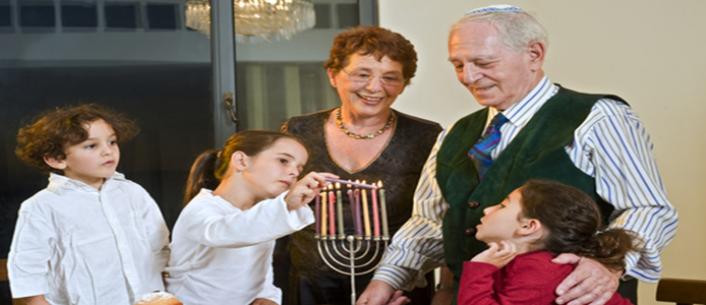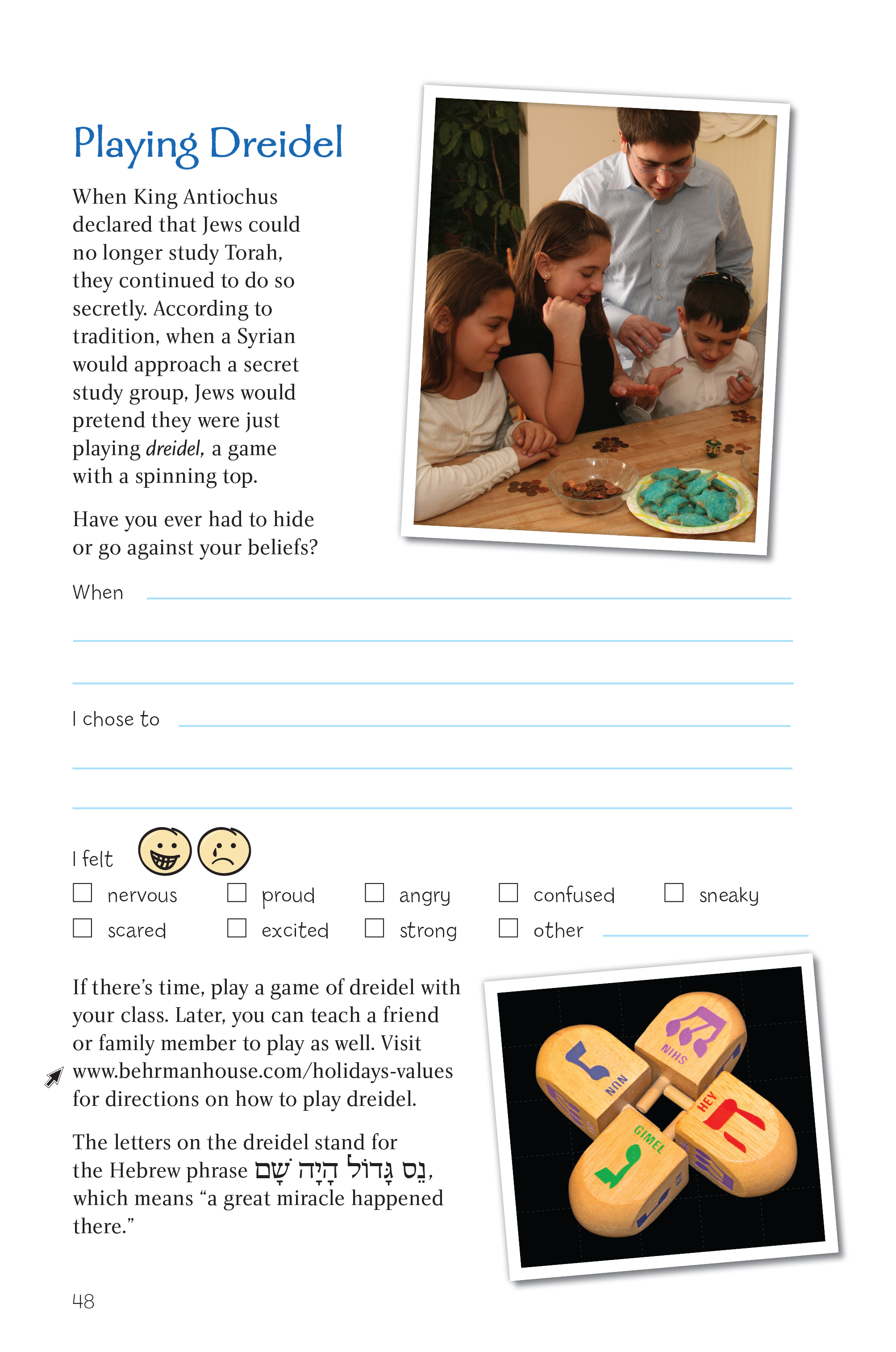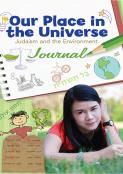- Home
- Play & Learn Home
- Online Enrichment
- Experience Modern Israel
- Israel It's Complicated
- Jewish and Me
- Jewish Holidays Jewish Values
- Jewish Values in Genesis and Jewish Values in Exodus
- Min Ha’aretz
- Our Place in the Universe
- Simply Seder
- The Prophets: Speaking Out for Justice
- Making T'filah Meaningful
- Make, Create, Celebrate
- Yom Haatzmaut Resources
- Hebrew Apps
- About The OLC
- What is the OLC?
- Introduction
- Get Started
- Resources
- OLC Content
- Parent Materials
- See My OLC Classes
- Store
What is Experiential Education and How Does Behrman House Support it?
Written by Behrman House Staff, 09 of December, 2014
We keep going back to this article by Carole Gerecht that appeared early this year as part of a series on experiential education, the process of teaching Jewish life, and Jewish values, by building meaningful Jewish experiences - creating learning opportunities through lessons and programs that combine traditional methods of text study, learning, and service, with physical and emotional interaction between learners.
A focus on the experiential, according to Gerecht, helps us "create “wow” moments: inspiring Jewish experiences that surprise and excite a new generation of learners to wrestle with the same Jewish values and questions that we all address every single day."
The academic underpinnings of experiential education have been heavily influenced by the work of David Kolb, Professor of Organizational Behavior in the Weatherhead School of Management at Case Western Reserve University, who defines experiential learning theory as “the process whereby knowledge is created through the transformation of experience. According to Kolb, our students grow when they are given opportunities to take concrete experiences and transform them through reflective processes that help them discover both the emotional resonance of the experience and the abstract concepts that are embedded within it.
How does this happen?
According to Kolb, there is an experiential learning cycle:
- Concrete experience (for example, at the end of Shabbat, lighting the havdalah candle, smelling the havdalah spices, experiencing the separation between Shabbat and the rest of the week)
- Observation and reflection (for example, noting how we feel as we go through the ritual of havadalah, considering the sweetness of the spices, reflecting upon how we feel as we move from one part of our week to another--are we sad that Shabbat is over? Are we eager to get on with the new week?)
- Forming abstract concepts (for example, considering what a day of rest means, what it means to guard or keep Shabbat, what holiness means)
- Testing in new situations (for example, trying the havdalah ritual at home, or leading the blessing for the first time, or lighting candles at the beginning of Shabbat; considering other ways in which separation helps us experience holiness)
Each part of the cycle brings a vital piece of learning. Importantly, the learning goes beyond the doing. In Kolb's model, the experience itself, the doing, comprises just 25% of the learning opportunity. Yet that is the piece many of us focus on, sometimes exclusively.
How do we take our lessons and programs beyond the doing into the reflective stages that carry emotional resonance, and then on to the abstract concepts that help students uncover the permanent learning we are after?
Supportive materials and lesson plans can help. For example, our newest book, Jewish Holidays, Jewish Values Journal helps you structure lessons for your students that incorporate concrete experiences with opportunities for building emotional resonance through small group work and personal reflection, and build to an understanding of abstract concepts such as the courage exemplified by many aspects of Hanukkah.
Through the lens of experiential learning, even an activity as seemingly simple as a game of dreidel then becomes an opportunity for reflection on the underlying meaning of the holiday. So, this Hanukkah don't just play dreidel with your students, but engage them in reflection of the meaning it holds for them, using this short lesson from Jewish Holidays Jewish Values.




